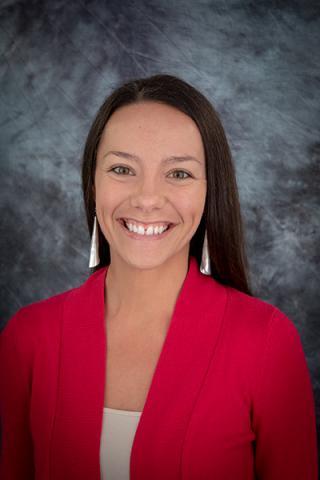- Log in to post comments
Melissa Horner, a doctoral student in sociology at Mizzou, has a heart for healing Native people’s historical trauma. And that love of giving, as well as her academic achievements, is what resulted in her being the only Missouri Robert Wood Johnson Health Policy Research Scholar for 2020.
The award, presented to second-year, full-time doctoral students, includes individuals from various disciplines who advance a “Culture of Health,” and equity, to enable Americans to live longer, healthier lives.
Robert Wood Johnson (1845-1910) was an industrialist and one of three brothers who founded Johnson & Johnson. His foundation is the largest solely health-related philanthropy organization in the nation.
Horner will receive a stipend for education purposes. She says she will also, as a result of the award, work under the same umbrella of people with similar helping interests. It will also connect her to mentors in the field.
“So, it will connect me to other Native people, other people working in health fields, other people interested in the same sort of things I am – the program calls it ‘building a culture of health.’
“It also provides ways for teaching me how to translate my research into policy and into ways that can actually benefit the communities that I’m interested in collaborating with.
Healing for All
She says her No. 1 passion is healing, beginning with self and moving outward.
“That’s why I’m here. That’s why I’m in grad school.
“I think ultimately my primary sort of responsibility is to facilitate my own healing and the healing inside my family, and beyond that I hope to be able to share what I learn about healing historical trauma to broader Native communities, so more people support each other in the healing process.”
For Horner, this process includes healing alongside others as well as connecting to ancestral homelands and cultural knowledge and practices.
When Horner heard of her award, she cried. “It was special, and I was surprised,” she says. “I know a lot of brilliant scholars in Missouri. And I think I’m just grateful ultimately.
“Nobody in my family has ever gone to college,” she adds. “Let alone graduate school, let alone being awarded an award like this. It wasn’t just important to me, it was important to my mom, important to my grandma, important to a lot of my relatives.”
Call From the Past
Horner, who grew up in Montana and is biracial – Métis/Anishinaabe and white – has deep roots in Native Nations in Canada and North Dakota. Her maternal grandma is Métis and Anishinaabe. She was born in the Saskatchewan region of Canada, grew up on the Turtle Mountain Band of Chippewa reservation in North Dakota, and later moved to Montana with Horner’s grandfather.
Horner says land issues are just one part of historical trauma many Native peoples encounter. In addition to land loss, for the last 500+ years, Native peoples have faced racism and genocide at the hands of the federal government, among other traumas.
“So that produced intergenerational trauma for subsequent generations,” she explains. “It is so complex. But historical trauma sort of permeates multiple domains of my own life, everything from emotional to mental to physical. Without going into many details, there’s healing across multiple domains that I have to do in order to be healthy and well in the world.”
Learning by Doing
Horner is currently considered a PhD student, as her master’s is embedded into the PhD program. In Spring 2021 she will have her masters, and then she will spend another four years at Mizzou continuing her PhD.
“What I’m writing on now, is sort of the beginning of what my dissertation research will be,” she explains. “I’m writing about how a particular tribal nation is healing historical trauma in their nation.”
Her dissertation is going to continue on with that research, but also look at historical trauma focused more on individual Native peoples and how they are interrupting and healing their own historical trauma that has been caused by settler colonialism.
Her plans so far are that the dissertation “experience” will be about a nine-month process of organizing a gathering where she and four to eight others will spend time in ceremony on Native lands in a community where individual Natives are working on healing.
“So, I will take part in that experience, and interview the people who are a part of it, and learn about what it is like to be a Native person who is trying to navigate the effects of historical trauma,” she says.
“I honestly don’t see myself as doing this alone. I believe that I’m only a change agent in relationship with all the other people who are in my circle. So, I would just say I have many people who are teaching me, and I have people who are learning from me, and so together that’s how I understand how change (occurs).”
Horner was previously a high school English teacher in Montana. She had a double major from Montana State University in English and education. She started her PhD program at Mizzou in 2019.
